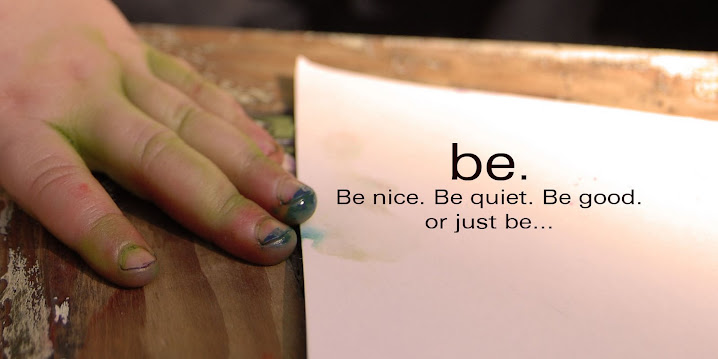So we're talking about studying your children as if you were going to be graded on them, as if they were a subject in school. We were asked to think about our favorite subject in high school or even elementary school. It didn't have to be the one we got the best grade in. It had to be the one we were passionate about. One said honors english, one said reading, one said geometry another p.e., one said it wasn't so much a class but being a part of the ASB, and another said being a part of the church youth group. I said of course art.
As the conversation developed it became obvious that each person's favorite subject directly led to their personality and most often vocation as an adult. It got us thinking about how we learn, how we are motivated, and how we pursue things of interest. We then were reminded that our class was our child. The subject is not math or history, but this little or not so little person. How will you approach learning this subject? Who is the teacher? How are we graded?
First I thought of my homeschooling experience in high school where we were required to write a syllabus before the course began. I always was frustrated by this because I wondered how I could write a syllabus on something I knew nothing about. It involved investigation, asking questions, drawing on multiple sources and research. Then you could start the class. Parenting doesn't offer you a syllabus, or a text book. Everyone makes that cliche joke about not leaving the hospital with out the operations manual after you have a baby. Honestly it isn't very funny. It's just annoying. As a parent I feel like I should have the answers. I wanted my parents to have the answers. I want to be handed the syllabus. I feel like I should be the teacher, but I am not. I am the student.
So who is the teacher? Who teaches you who your child is? Certainly not them. They don't know who they are. They are developing and changing daily and longing for someone to speak identity into them. A scientist doesn't set out to observe a specimen in hopes that all their questions will be answered by the specimen. They rely on their experience, their ability to ask informed questions, to confer with colleagues and to refer to other sources and observation to derive a hypothesis. They are partners with the specimen in an investigation. Ultimately as parents we do have a textbook on our children. It is our children. They are our textbook. The only catch is we don't have a table of contents or chapter summaries. It is being written in real time. It is being written as we watch.
One parent said, "I'm reading chapter 17 right now. I loved chapter 7 and 9 and in chapter 11 something amazing happened, but I haven't got a clue on how to understand this chapter. I could decide that if I get a 60% on chapter 17 it is still a passing grade, and looking back on my cumulative GPA it might not hurt me too much, but then what if I keep deciding that? What if I end up being a 60% parent?"
We are students of these books, but we are also very close with the author. We know the author has an outline. The author has an expertise and a finished product that He is working towards. The author is our teacher. He is the designer and the creative director. He gives us resources in each other in other adults in our kids' lives and he gives us His spirit.
Another exercise involved identifying traits in our children that we would like to foster and develop versus trying to just build their resume. As I read through the 7 pages of characteristics complete with definitions and Bible references to back them up, I thought 2 things.
1. I may not be able to discern these things by chapter 3 and surely not by chapter 1.
2. I really need to ask myself what traits listed here do I see in ME that I want to foster and develop.
Modeling always comes before teaching. Whether we want it to or not, it does. This terrifies me because I am so wired to do instead of be. I long for my kids to know that they are known. They are honored and celebrated for who they are and not what they do. Sometimes those lines get fuzzy and I suppose that is in a later chapter cause right now it doesn't seem to be quite so pressing.
A friend of mine shared a saying with me. She said, "We make a path by walking." I suppose that is what parenting is; observing in patience as your child's book is written. Being attentive to shifts and changes and following the narrative like it is your favorite subject. Stories aren't interesting unless they have conflict. Stories aren't interesting if you know the end before you start. Stories aren't stories unless there is someone listening.


